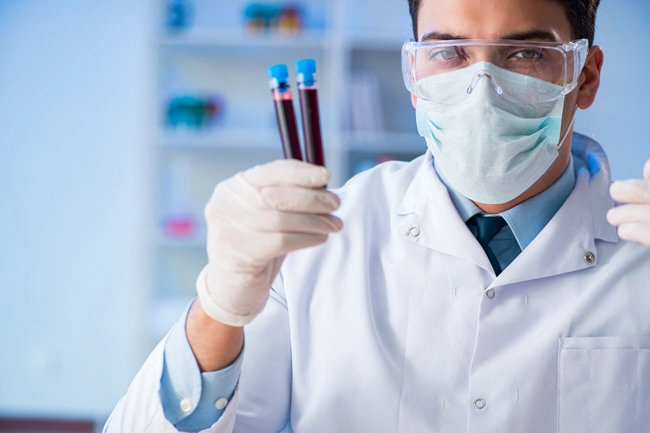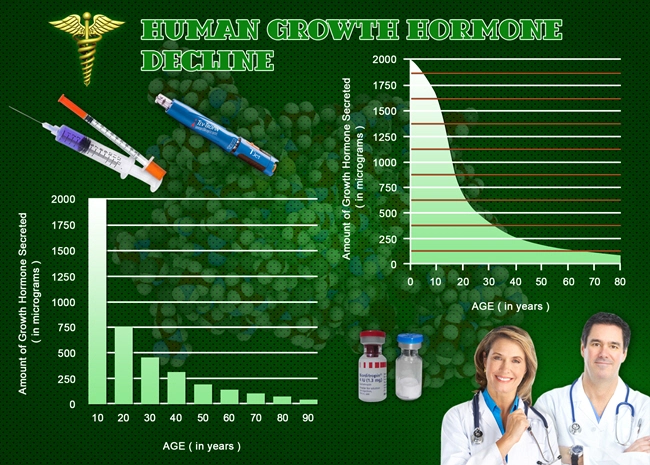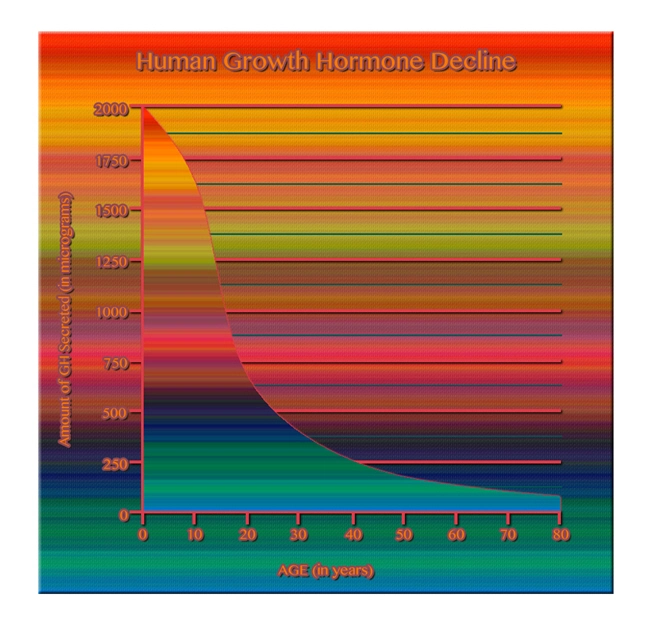
Video Link: https://vimeo.com/280092788
Video Download: Click Here To Download Video
Video Stream: Click Here To Stream Video
Video Link: https://vimeo.com/280092723
Video Download: Click Here To Download Video
Video Stream: Click Here To Stream Video
Movie stars have always been trendsetters. From vernacular to fashion, from fad diets to unusual fitness routines, the entertainment industry has had an enormous effect on what we do, what we say, how we think, and how we act. The latest trend the stars such as Suzzane Somers and Sylvester Stallone have latched on to is Human Growth Hormone Replacement Therapy (HGH-RT).
 Looking our best is, of course, a universal desire. But for those who make their living in front of a camera, looking youthful, vibrant and energetic is not an option, but a career necessity, as much as a hammer is to a carpenter.
Looking our best is, of course, a universal desire. But for those who make their living in front of a camera, looking youthful, vibrant and energetic is not an option, but a career necessity, as much as a hammer is to a carpenter.
As a consequence, many top stars have heard of the promised benefits of HGH: ripped abs, fewer wrinkles, increased sex drive, more energy, and more aggression. And they consider HGH replacement therapy a career-extending lifesaver.
In his Vanity Fair article entitled Hollywood's Vial Bodies, Ned Zeman begins by detailing the dilemma of a well-known but unnamed actor who has just walked past his mirror and noticed (for the first time) the subtle but undeniable telltale signs of aging: the greyish skin, sagging muscles and made the connection with his lowered energy level.
This was happening in spite of his fanatical exercise routine. Worse, this couldn't be happening at a more inopportune time: he was signed for a film role in which he would be required to be both semi-athletic and half-naked.
Therefore, he decided that he needed to blast off his energy levels, since charisma is so crucial to actors, and charisma is a form of energy. He was not the type that would consider protein bars, shakes, and oxygen chambers, let alone any emasculating plastic surgery.
This left HGH as his best (or only) option. He first heard about it through his friends and fellow actors, all of whom swore by the stuff. But he was still somewhat reluctant to give it a try, as he associated HGH with steroids. But the dire, immediate circumstance he was in overcame his concerns. Two weeks later, he took a deep breath, pinched a layer of belly fat, and plunged the needle in.
According to Zeman, HGH in Hollywood is mostly the domain of older actors. One talent manager was quoted as saying that “any actor over 50 you still see with a ripped stomach and veins in his forearms is probably taking HGH.”
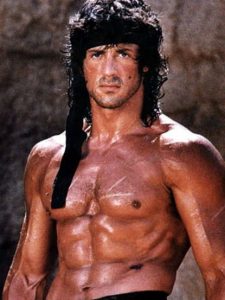 But personal testimonials are hard to come by. At this point, only Sylvester Stallone, Nick Nolte, and Oliver Stone have publicly admitted HGH use. Why? Because in the minds of many, to acknowledge HGH use is to expose a weakness. One producer pointed out that many equate HGH with Viagra or Botox, and that's why it is always someone else using it...never them.
But personal testimonials are hard to come by. At this point, only Sylvester Stallone, Nick Nolte, and Oliver Stone have publicly admitted HGH use. Why? Because in the minds of many, to acknowledge HGH use is to expose a weakness. One producer pointed out that many equate HGH with Viagra or Botox, and that's why it is always someone else using it...never them.
Ironically, HGH has been described as the “love child” of Viagra and Botox. When used as directed, it smooths wrinkles, reduces body fat, increases bone density and muscle mass, and even increases one's libido, mood, and sense of vitality. To quote Dr. Uzzi Reiss, a Beverly Hills physician and a leading force in the HGH trend, “It's a rejuvenating effect.”
Next, Zeman describes the history of HGH use. Beginning in the 1950s, doctor's started injecting undersized children with Growth Hormone extracted from human cadavers.
Growth Hormone is secreted by the pituitary gland and is responsible for the growth of cells, bones, and muscles. If a child's pituitary is not producing sufficient amounts, they will experience stunted growth, even dwarfism.
But this approach had two flaws. First, supplies were limited and consequently restricted to the neediest patients. Second, it produced hit-and-miss results. At times, the treatment produced growth spurts. At other times, the child experienced nothing but aching joints and devastating disappointment.
But that changed in 1985 when the Food and Drug Administration (FDA) gave their stamp of approval to a biosynthetic form of HGH developed by Genentech, a South San Francisco-based biotechnology company.
This new stuff was a tremendous improvement and showed promising results. The average pre-teen patient grew two inches, and some, a bit more. The side effects were mild and treatable and were well-worth the end of the taunting that the small children received in gym class.
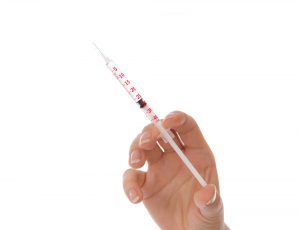 But HGH is not without risks. After nearly three decades, researchers have uncovered a few disturbing trends: increased risk of cancer, heart attack, and diabetes. The diabetes is thought to be caused by HGH's ability to improve glucose intolerance, due to the impact of HGH on the metabolization of carbohydrates.
But HGH is not without risks. After nearly three decades, researchers have uncovered a few disturbing trends: increased risk of cancer, heart attack, and diabetes. The diabetes is thought to be caused by HGH's ability to improve glucose intolerance, due to the impact of HGH on the metabolization of carbohydrates.
However, all pharmaceuticals pose some degree of risk. The medical establishment weighed the risk/reward ratio and recommended HGH for appropriate patients.
The FDA then approved the therapy for several afflictions that impair growth and development: Turner's syndrome, Prader-Willi syndrome, chronic renal deficiency, and HIV-associated wasting disease.
And the results spoke for themselves. HGH-deficient patients experienced improved muscle tone, increased strength and energy, glowing skin, and they were much happier.
Studies showed that the therapy, when used correctly, was, for the most part, safe, and the big drug companies (Big Pharma) moved in and went to work, turning HGH into a multi-billion dollar industry.
But then came the controversy. World-class athletes jumped on the HGH bandwagon in their never-ending quest to ratchet up their performance to the next level and develop an edge. Soon, sports governing bodies were outlawing HGH, and the media was quick to stigmatize anyone caught using.
Also, the scammers soon reared their ugly heads. The Internet was packed with HGH creams, powders, and pills; some worked, and some didn't. Longevity Clinics sprung up, some legitimate and some not.
Some were staffed by well-trained, experienced professionals who followed secure protocols. But some were not, and were not overly selective as to whom they would prescribe HGH.
Enter Suzanne Somers. The beautiful actress published a book in 2006 titled Ageless: The Naked Truth About Bioidentical Hormones. In spite of some criticism by some doctors, it debuted at No. 1 on the New York Times bestseller list.
Somers correctly predicted the increased demand for HGH and other forms of hormone replacement. “A change is a-comin',” she recently said. “As the boomers age and lose their edge, they are looking around at the ones who are looking like they have a secret. More and more, my phone rings with Hollywood folks who want to know who to go to. That's progress, and I get great satisfaction from it. And I know my stuff. I live it, walk it, talk it.”
There is another group of people who make their living by their physical appearance: professional bodybuilders. The proximity of Hollywood to Muscle Beach in nearby Venice allowed for bodybuilders to introduce HGH to actors.
in nearby Venice allowed for bodybuilders to introduce HGH to actors.
Zeman brings up a fascinating comparison. Actors have an advantage over bodybuilders when it comes to using HGH. “There's no real stigma about performance-enhancing, lead,” says one filmmaker. “Acting is a business that operates on the any-means-necessary thing. It's not like sports. There's less prejudice about altering your body.”
In fact, many actors are routinely urged to “enhance” their appearance in several ways: boob jobs, rhinoplasty, capped teeth, or buttock implants. As they say, acting is the art of transformation. The producer continues: “An actor's view would be 'Well, it wasn’t me who did HGH. It was just the character.' ”
By the late 2000s, HGH had entered the mainstream. Many actors and other celebrities were found to have received not only shipments of HGH, but testosterone and anabolic steroids as well. The biggest was Stallone, who was caught going into Australia with 48 vials of HGH in his luggage.
His later explanation was classic: “HGH is nothing,” he told People magazine. “Anyone who calls it a steroid is grossly misinformed. Mark my words. In 10 years, it will be over-the-counter.”
Another reason so many wealthy Hollywood types use HGH is this: the effect on their libidos. To quote one anonymous user: “I'll tell you why I took HGH in the first 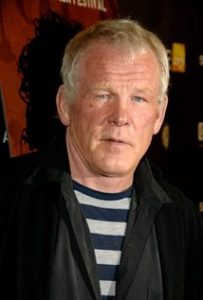 place. I love fucking.”
place. I love fucking.”
He continues: "I like the sense of self that comes from confidence in that area. And when I hit my 50's, although I was still very sexually active, I was less so than I was in my 20's. And like other pathetically insecure Hollywoodites, I had an internal panic that led me to explore what options were available in the world. I am one of the pathetically insecure Hollywood people who, like everyone else who lives here, is overly concerned with looks.”
He had initially tried testosterone therapy, but found it too overpowering...or made him a bit too alpha. This cost him a few jobs since testosterone has the potential to bring out roid-rage-type aggression in those who abuse the dosage.
But HGH is far milder than testosterone or steroids.
The same filmmaker said that after a few weeks of HGH, “my internal organs got healthier quickly. And I could feel it...the main impact of HGH, to me, was in my mood. I was just generally healthy. I would wake up feeling great. HGH is really useful, I found. It very much imbues you with a sense of clarity and confidence.”
The filmmaker received his HGH from the earlier mentioned Dr. Reiss, who runs the Beverly Hills Anti-Aging Center for Men and Women & Advanced Nutrition and Hormone-Based Gynecology.
He is not an endocrinologist, and he does not hide that fact. “The same doctors who criticize the use of HGH for anti-aging reasons take young, short children -- the most vulnerable population -- and give them much larger doses and claim it is safe,” Reiss says. “It doesn’t make any sense.”
Zeman addresses the question of “What is the definition of an HGH deficiency?” He answers it by saying that it depends on who you ask. Everyone agrees that our natural supply of HGH begins to drop as we age.
The mantra for anti-aging doctors is “not so fast!” They want to change our lifespans from a triangle (full at the bottom, then steadily narrowing to nothing) to a rectangle: consistently broad until the end. The focus is not so much living forever as it is in preventing the debilitating diseases that destroy the quality of our lives.
By turning the body clock back, HGH turns the aging process back as well. Dr. Reiss claims not to get sick, never suffer from jet lag, and have the energy of someone half his age.
 The formal procedure for determining a Growth Hormone deficiency is to do a blood test and perform a “growth hormone stimulation test."
The formal procedure for determining a Growth Hormone deficiency is to do a blood test and perform a “growth hormone stimulation test."
The pituitary gland secretes the most HGH at night, and the stimulation test measures this release from a sleeping patient. The endocrinologist then examines the result and determines if the number is considered in the deficient range.
But anti-aging physicians see things differently. They consider symptoms, such as fatigue and weakness. This is far more subjective than reading numbers, but it is perfectly legal. Physicians are permitted to prescribe medications “off-label,” or for a purpose not precisely what the drug was designed for.
This has, naturally, lead to controversy. On the one hand are the progressive, anti-aging doctors. On the other side of the dispute are the majority of endocrinologists, who feel that there is only a small, tiny percentage of the population that has a legitimate need for HGH. The debate continues.
There is also the question of price. HGH replacement therapy is not cheap. The average HGH patient will shell out $10,000 per year, not including office visits and lab tests — the endocrinologists that are cynical feel that many of the benefits that HGH delivers are nothing more than an expensive placebo effect.
Zeman reminds us of something else.
Don't think for one moment that all you have to do is give yourself an injection of HGH a few times a week and see results. Gunnar Peterson, a celebrity personal trainer, says that “if you think you're just going to inject yourself in the belly with a little prick and not train and eat whatever you want and you're going to be ripped, you're joking. People like that are going to try whatever the next flash in the pan is.”
eat whatever you want and you're going to be ripped, you're joking. People like that are going to try whatever the next flash in the pan is.”
Medical experts do agree for the most part that most HGH users will see some benefits, even though they may be small. But they are concerned about the long-term effects of HGH use. There is so much that is unknown.
But regardless of the risks, the doctors understand why most actors and athletes go for it anyway. After all, their lives and livelihoods depend on it. And so many of their competitors do it that it has become something akin to chemical warfare.
Do it, or risk coming in second place. Both actors and athletes have a shelf life for their careers, and immediate improvements are hard to resist.
This is precisely the mindset of the actor featured at the top of the article. He stayed on HGH for about two years. The benefits? His skin seemed to smooth out a bit, his abs came back, and in the gym, the weights became lighter.
“Do I know for sure that HGH helped me?” he questions. “No, not really.” He pauses. “I guess the only thing I know for sure is that starring in movies is great until you get man tits.”
Reference
Contact Us Today For A Free Consultation
Dear Patient,
Once you have completing the above contact form, for security purposes and confirmation, please confirm your information by calling us.
Please call now: 1-800-380-5339.
Welcoming You To Our Clinic, Professor Tom Henderson.

- How to Get Started with HGH Injections [Last Updated On: December 2nd, 2020] [Originally Added On: August 24th, 2020]
- At Last! Introducing Humatrope HGH Replacement Therapy [Last Updated On: February 1st, 2025] [Originally Added On: August 29th, 2020]
- Omnitrope...a Powerful Addition to Your Anti-Aging Toolbox [Last Updated On: January 31st, 2025] [Originally Added On: September 2nd, 2020]
- Nutropin Makes Old Bodies Young Again! [Last Updated On: January 31st, 2025] [Originally Added On: September 3rd, 2020]
- Buy Serostim HGH Injections: Can Serostim injectable human growth hormone help one to increase lean muscle mass through body building? [Last Updated On: January 30th, 2025] [Originally Added On: September 8th, 2020]
- Like To Join The Anti-Aging Party? You Can…With Saizen [Last Updated On: January 28th, 2025] [Originally Added On: September 9th, 2020]
- Causes of Human Growth Hormone (Somatropin) Deficiency [Last Updated On: January 30th, 2025] [Originally Added On: September 17th, 2020]
- Ipamorelin: A new tool to boost your growth hormone levels [Last Updated On: October 10th, 2024] [Originally Added On: March 16th, 2021]
- What You Need to Know About Somatropin (Humatrope) [Last Updated On: January 29th, 2025] [Originally Added On: April 1st, 2021]
- Considering Growth Hormone Replacement Therapy for Injury Relief? [Last Updated On: January 29th, 2025] [Originally Added On: August 16th, 2021]
- HGH Purchased From Mexico Is Illegal - Don't Buy HGH Illegally [Last Updated On: March 1st, 2025] [Originally Added On: September 2nd, 2021]
- The Incredible Benefits of Growth Hormone [Last Updated On: January 28th, 2025] [Originally Added On: September 14th, 2021]
- Buy Human Growth Hormone Legally! [Last Updated On: January 26th, 2025] [Originally Added On: September 26th, 2021]
- Side Effects and Dangers of Growth Hormone [Last Updated On: March 4th, 2025] [Originally Added On: September 26th, 2021]
- Boost Growth Hormone [Last Updated On: January 19th, 2025] [Originally Added On: September 26th, 2021]
- Glossary of terminology [Last Updated On: August 9th, 2025] [Originally Added On: September 26th, 2021]
- Growth Hormone Side Effects [Last Updated On: January 18th, 2025] [Originally Added On: October 6th, 2021]
- Buy Growth Hormone: Legally [Last Updated On: March 2nd, 2025] [Originally Added On: October 7th, 2021]
- How to Dispose of Needles Correctly [Last Updated On: January 23rd, 2025] [Originally Added On: October 7th, 2021]
- How To Avoid Growth Hormone Scams [Last Updated On: January 22nd, 2025] [Originally Added On: October 7th, 2021]
- How to Inject Growth Hormone [Last Updated On: January 23rd, 2025] [Originally Added On: October 7th, 2021]
- Growth Hormone Testimonials [Last Updated On: January 25th, 2025] [Originally Added On: October 7th, 2021]
- Growth Hormone and Statin Drugs [Last Updated On: January 20th, 2025] [Originally Added On: October 7th, 2021]
- Doctors Comment on Growth Hormone [Last Updated On: January 24th, 2025] [Originally Added On: October 7th, 2021]
- Growth Hormone Therapy Protocol [Last Updated On: January 22nd, 2025] [Originally Added On: October 7th, 2021]
- All About Growth Hormone [Last Updated On: January 21st, 2025] [Originally Added On: October 7th, 2021]
- Guide to Growth Hormone Replacement Therapy: Somatropin [Last Updated On: January 25th, 2025] [Originally Added On: October 25th, 2021]
- Growth Hormone and The Thyroid Gland [Last Updated On: April 24th, 2025] [Originally Added On: November 19th, 2021]
- Weekly HGH Injections with Sogroya for Hypopituitarism [Last Updated On: May 29th, 2025] [Originally Added On: June 27th, 2022]
- From Incel to Chick Magnet in One Easy Step [Last Updated On: October 2nd, 2025] [Originally Added On: July 8th, 2022]
- Slow Aging with Growth Hormone [Last Updated On: May 27th, 2025] [Originally Added On: July 17th, 2022]
- How to Self-Administer HGH [Last Updated On: June 3rd, 2025] [Originally Added On: January 25th, 2023]
- Women in High Stress Situations: Can HGH Help? [Last Updated On: September 21st, 2025] [Originally Added On: March 8th, 2023]
- A Positive Testimonial to HGH Prescription for Growth Hormone Deficiency [Last Updated On: October 24th, 2024] [Originally Added On: September 28th, 2023]
- The Dangers and Illegality of Purchasing HGH from Mexico [Last Updated On: February 25th, 2025] [Originally Added On: February 25th, 2025]
- Legality of Purchasing Human Growth Hormone [Last Updated On: February 26th, 2025] [Originally Added On: February 26th, 2025]
- Implications and Risks of Human Growth Hormone Usage [Last Updated On: February 27th, 2025] [Originally Added On: February 27th, 2025]
